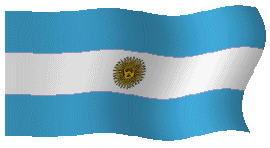
B"H
Jewish  Tours
Tours
 Buenos Aires, Argentina
Buenos Aires, Argentina

|
What is Travelers’ Choice?
Tripadvisor gives a Travelers’ Choice award to accommodations,
attractions and restaurants that consistently earn great reviews
from travelers and are ranked within the top 10% of properties
on Tripadvisor.
¿Qué es el premio Travellers' Choice?
Tripadvisor les otorga el premio Travellers' Choice a los
alojamientos, las atracciones y los restaurantes que
consistentemente reciben excelentes opiniones de los
viajeros y que se clasifican dentro del 10% de los
establecimientos más populares en Tripadvisor.
|

How an Israeli-Canadian found out her daughter was killed by Hamas, her
grandchildren taken hostage
The Vital-Kaploun family went to bed that night
and said goodbye to a different world. They closed their eyes and slept until
they were awoken to a new brutal reality
Author of the article:Ari David
Blaff
Published Oct 04, 2024 • Last updated Oct 05, 2024
Adi
Vital-Kaploun, pictured, killed a Hamas terrorist in her house on Oct. 7, but
was slain defending her children in its safe room, her mother Jacqui believes.
Adi Vital-Kaploun invited family to her house on Kibbutz Holit for Shabbat
on Oct. 6, an Israeli community a few kilometres from Gaza and the Egyptian
border.
It was Simchat Torah — a time for celebration on the Jewish calendar,
marking the end of the Torah reading cycle, and rejoicing as the process begins
anew. Though fall was approaching, the heat in southern Israel hadn’t let up. It
still hit temperatures in the thirties despite the breeze coming off the
Mediterranean.
Adi invited her sister, Ayala, who lived on Kibbutz Kissufim,
another Gaza border community just south of Kibbutz Be’eri, Nahal Oz and Kfar
Aza. Her father, Yaron, even drove the nearly two-hour drive from Jerusalem.
After supper, Ayala went home. Adi told Yaron to stay the night in an empty
guesthouse nearby because Eshel, her six-month-old baby boy, would cry and
surely wake him up.
Jacqui Rivers Vital, Adi’s mother, couldn’t make it. She
was visiting family in Canada — a country she emigrated from in 1974 — for the
first time since the pandemic. She’d been in Toronto the week before, where she
went to university, and was set to return to Israel on Oct. 8.
Adi’s husband,
Anani, woke up at 4:30 a.m. on Oct. 7 and joined a group of kibbutzniks for a
sunrise hike and some breakfast. Adi and her two children, Eshel and
three-year-old Negev stayed behind. They planned to meet up afterwards.
Around 6:30 a.m., local time, air raid sirens began blaring across Israel as
thousands of rockets were unleashed in an unprecedented attack. It only took a
few seconds for these projectiles to hit one of the dozens of Israeli towns
scattered across the region known as the Gaza Envelope.
It had become common
for many who lived in these communities since Israeli forces withdrew from the
Gaza Strip in 2005, and Hamas forcibly took over in 2007, to run to bomb
shelters during such attacks. Usually, residents stayed in safe rooms for ten or
fifteen minutes, perhaps a few extra for added security, before returning to
normal.
Yaron initially thought it was another everyday routine when he was
awakened by what sounded like “thunder” on Oct. 7. Another attempt by Hamas to
disturb the peace of a relaxing Shabbat. But the lull never came. Instead, he
began to see terrorists on motorcycles trying to break into the kibbutz. As a
visitor, he wasn’t in the community WhatsApp chat. He couldn’t communicate with
those around him and locked himself in the safe room.
It’s almost a year
later. It’s still a dream
He heard terrorists getting closer. They managed to
breach the security walls and the shooting was growing louder by the minute.
Yaron could hear the sounds of people begging for mercy, a spray of rifle fire,
and then silence. He called Adi at 12:30 p.m., who insisted he stay put. One of
the first people murdered was Moshe Ridler, a 92-year-old Holocaust survivor.
That was the last time they ever spoke.
Jacqui woke up in Ottawa at 6:30
a.m., seven hours behind Israel time, to her phone convulsing with notifications
and red alerts warning of imminent rocket strikes. She instantly called Yaron
who told her what was happening but said they shouldn’t speak because a
terrorist might overhear him.
“I went upstairs and said to my sister,
something bad is happening in Israel. It’s near where the girls live,” Jacqui
told National Post from her home in Jerusalem.
Eleven hours after the
invasion began, Yaron was freed by Israeli soldiers. He then accompanied them to
Adi’s house, which was quickly cleared. They told him it was safe to enter but
warned, “there’s a dead body on the floor,” Vital recalls.
He feared it was
Adi.
Entering the destroyed house, he saw the body of a man he didn’t
recognize. Bullet holes riddled the walls. Spent casings of rifle ammunition
littered the floor. The safe room looked “like Swiss cheese,” Vital remembers
Yaron telling her. The soldiers couldn’t jar it open.
Yaron called Jacqui a
few hours later with encouraging news. “The boys were safe,” she remembers her
husband telling her. “They’d come back with the neighbour. But I didn’t know the
whole story.”
What Yaron was keeping from Jacqui was that their grandchildren
Eshel and Negev were taken to the border of Gaza alongside Adi’s neighbour,
Avital Alajem. Footage released by Hamas the following Friday, Oct. 13, showed
the terrorists holding Negev while rocking Eshel in a stroller after murdering
Adi.
When Alajem’s house was attacked, a neighbour who was sheltering with
her was murdered, while Alajem was taken alive. She was escorted on foot with
Eshel and Negev to the Gaza border. After they were reportedly left alone for a
few moments, Alajem walked to the two boys and started walking back to Israel.
Footage of the moment went viral in Israel. Jacqui was unaware the moment was
captured on film until the clip appeared on CNN on Monday, Oct. 9.
Jacqui
briefly thought that Adi was kidnapped and in Gaza. However, by Oct. 8, she was
growing skeptical. Speaking with RCMP officers dispatched to investigate the
case, since Adi was a Canadian citizen, she told them, “she’s not alive.”
“My
sister’s house was like a shiva house without a shiva because people were coming
all the time just to be with me. It’s like doom and glum but not for real,” she
said, trailing off. “It’s almost a year later. It’s still a dream.”
By the
following Tuesday, October 10, Jacqui was informed that a subsequent military
sweep of Holit opened Adi’s safe room window. Soldiers crawled through the
opening and found her. “They saw her body underneath all the chaos in the safe
room,” Vital told the Post. “They managed to pull her body out safely,” she
continued, “but her body had been booby-trapped with about fifty grenades.”
Adi was identified by her wedding ring.
Jacqui believes Adi killed the
terrorist in her house (where she had access to a rifle because her husband was
part of Holit’s security team) and was slain defending her children in the safe
room.
The following day, Jacqui flew to Israel via New York City and made
funeral arrangements before Shabbat. About 1,500 people, Jacqui said, attended
Adi’s funeral, so many that traffic backed up the highway between Beit Shemesh
and Jerusalem. The October skies opened up, Jacqui remembered, as the
Vital-Kaploun family left the service and walked to the grave.
She feels that
the federal government, particularly Prime Minister Justin Trudeau, failed the
eight Canadian-Israelis killed during the Hamas invasion. Visiting Parliament
Hill on a mission with the Raoul Wallenberg Centre for Human Rights in March,
Jacqui recalled meeting Trudeau alongside Foreign Affairs Minister Mélanie Joly
and Immigration Minister Marc Miller.
She confronted the Liberal Party
leaders, asking them why they hadn’t spoken to her or advocated for Adi after
learning that she was missing in the hours following the attacks. The only
message she received from the Trudeau government came from Joly on Oct. 11, the
day she left for Israel, noting that they “might” be able to help her get a
flight to Greece, which she could use as a jumping-off point to Israel.
“Just
as I was walking out the door to go to the airport,” Jacqui remembers, “I knew
that she (Adi), that her body had been found, and I was on my way back to
Israel. Mélanie Joly called me at 3 p.m. on Wednesday afternoon and said we
might have a plane that can take you to Athens.
“I said, ‘You’re too late.
I’m on my way to the airport.’ That was the help from the Canadian government.
Zero.”
Jacqui is now part of a lawsuit against the Liberal government,
including one focused on the Canadian government’s funding of the United Nations
Reliefs and Works Agency (UNRWA), a UN organization sponsored to exclusively
help Palestinians. Since October 7, the Israeli government has alleged members
of the group participated in the atrocities and that employees, more broadly,
are affiliated with Palestinian terror groups.
https://www.shorelinebeacon.com/news/world/israel-middle-east/hamas-attack-canadian
|
Visite nuestro sitio/Visit our home page: |